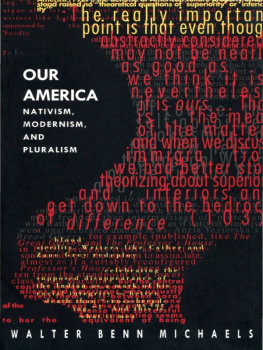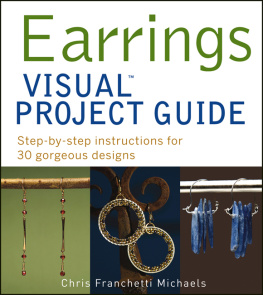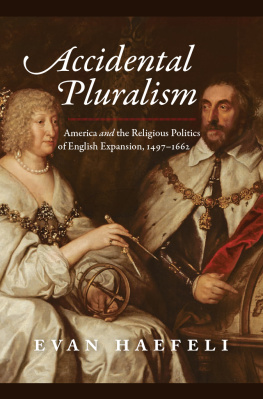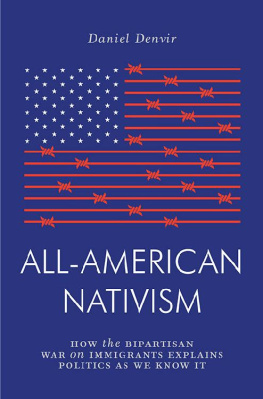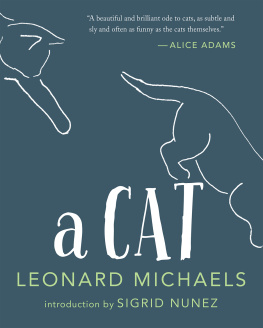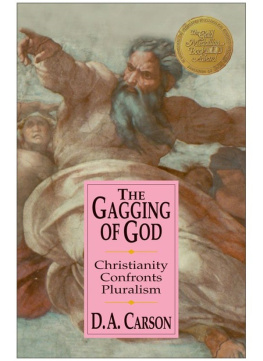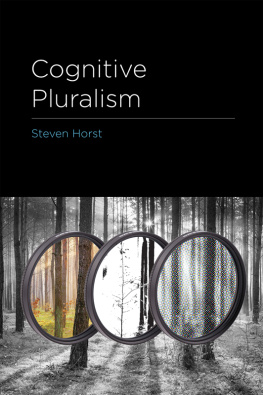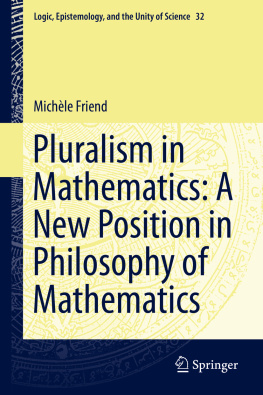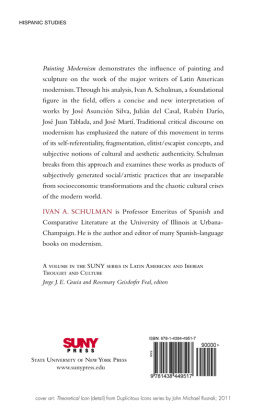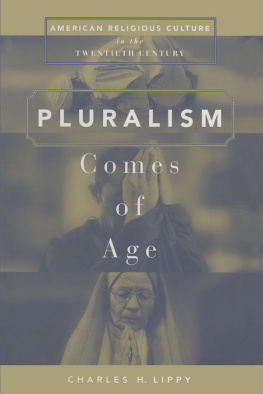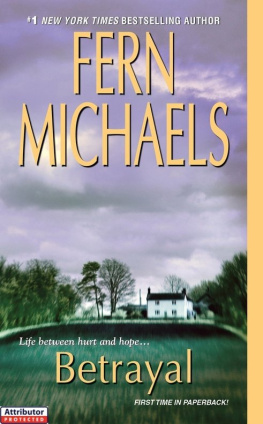Michaels - Our America: Nativism, Modernism, and Pluralism
Here you can read online Michaels - Our America: Nativism, Modernism, and Pluralism full text of the book (entire story) in english for free. Download pdf and epub, get meaning, cover and reviews about this ebook. City: London;Durham;NC, year: 2007;2012, publisher: Duke University Press, genre: Romance novel. Description of the work, (preface) as well as reviews are available. Best literature library LitArk.com created for fans of good reading and offers a wide selection of genres:
Romance novel
Science fiction
Adventure
Detective
Science
History
Home and family
Prose
Art
Politics
Computer
Non-fiction
Religion
Business
Children
Humor
Choose a favorite category and find really read worthwhile books. Enjoy immersion in the world of imagination, feel the emotions of the characters or learn something new for yourself, make an fascinating discovery.
- Book:Our America: Nativism, Modernism, and Pluralism
- Author:
- Publisher:Duke University Press
- Genre:
- Year:2007;2012
- City:London;Durham;NC
- Rating:4 / 5
- Favourites:Add to favourites
- Your mark:
- 80
- 1
- 2
- 3
- 4
- 5
Our America: Nativism, Modernism, and Pluralism: summary, description and annotation
We offer to read an annotation, description, summary or preface (depends on what the author of the book "Our America: Nativism, Modernism, and Pluralism" wrote himself). If you haven't found the necessary information about the book — write in the comments, we will try to find it.
Michaels: author's other books
Who wrote Our America: Nativism, Modernism, and Pluralism? Find out the surname, the name of the author of the book and a list of all author's works by series.
Our America: Nativism, Modernism, and Pluralism — read online for free the complete book (whole text) full work
Below is the text of the book, divided by pages. System saving the place of the last page read, allows you to conveniently read the book "Our America: Nativism, Modernism, and Pluralism" online for free, without having to search again every time where you left off. Put a bookmark, and you can go to the page where you finished reading at any time.
Font size:
Interval:
Bookmark:

Post-Contemporary Interventions
Series Editors: Stanley Fish and Fredric Jameson
DUKE UNIVERSITY PRESS Durham and London 1995
4th printing, 2007
1995 Duke University Press
All rights reserved
Printed in the United States of America on acid-free paper
Typeset in Berkeley Medium by Keystone Typesetting, Inc.
Library of Congress Cataloging-in-Publication Data appear
on the last printed page of this book.
To Becky and Sascha
I first studied modernism with Hugh Kenner and Herbert N. Schneidau; although neither is likely to agree with many of the views expressed in this book, I owe a great deal to both of them and am grateful for the opportunity to acknowledge that debt. My own students at Johns Hopkins especially Shelly Eversley, Maria Farland, Jared Gardner, Todd Jackson, Cathy Jurca, Alex Love, Dan McGee, Mark McGurl, Mark Schoening, Michael Szalay, and Joanne Woodhave made significant contributions to this project, as have many colleagues at Hopkins and elsewhere: Deborah Chay, Jerome Christensen, Arnold Davidson, Neil Hertz, Stanley Fish, Henry Louis Gates Jr., Amy Kaplan, Ruth Leys, W. J. T. Mitchell, Stephen Nichols, Donald Pease, Ross Posnock, Michael Rogin, and the two anonymous readers for Duke University Press. Finally, Our America would not have been possible without Sharon Cameron, Frances Ferguson, Michael Fried, and Steven Knapp.
Our America
THE REVEREND SHEGOG'S Easter sermon in the fourth chapter of William Faulkner's The Sound and the Fury (1929) repeats and interlaces that novel's twinned fantasies about language and the familyabout language, that the word can be made flesh and, about family, that endogamy can supplant exogamyby invoking the Eucharistic miracle that turns the sign of Christ's blood into the blood itself and by reimagining a congregation as a collection of blood relations: "Breddren en sistuhn," the Reverend Shegog says, "I got de ricklickshun en de blood of de Lamb." In The Sound and the Fury, the desire to make words into things and the desire to sleep with your sister are inseparable or even, as is the case with Quentin's "I have committed incest I said" (49), indistinguishable. To commit incest by saying that you've committed incest is to make the words the thing; to say you've committed incest and thus to commit incest is to keep your sister forever in your family"if I could tell you we did it would have been so and then the others wouldnt be so and then the world would roar away" (107-8). In The Sound and the Fury, these ambitions are doubly linked, first because they both involve a repudiation of arbitrary or conventional relations (between word and thing, between husband and wife) and, second, because the repudiation of those relations is everywhere deployed in defense of a tautology that will find its definitive formulation in the proposition "blood is blood and you can't get around it" (146).
The Sound and the Fury repeatedly insists that what people and things do or mean is a function of what they are; it insists, that is, on identity as the determining ground of action or significance. In this, as the following But while the pages that follow will often engage the kinds of hostility that Higham describesQuentin Compson's joke, "Land of the kike home of the wop" (76) is one examplemy main focus will be less on the hostility itself (which will, in any case, prove to be only one of several affective stances made available by nativism) than on the changing conceptions of identity sometimes articulated by that hostility. I will argue that nativism in the period just after World War I involved not only a reassertion of the distinction between American and un-American but a crucial redefinition of the terms in which it might be made. America would mean something different in 1925 from what it had meant at, say, the turn of the century; indeed, the very idea of national identity would be altered. My use of the term "nativist modernism," as opposed to nativism tout court, is meant in part to suggest what I will describe as the distinctive nature of nativism in the '20s.
It is also meant to suggest that the nativism discussed here is simultaneously a modern and a modernist phenomenon. Although there are many different accounts of literary modernism, probably all of them acknowledge its interest in the ontology of the signwhich is to say, in the materiality of the signifier, in the relation of signifier to signified, in the relation of sign to referent. My point, then, in beginning this book with an exploration of the relation between a certain fantasy about the signthat it might function, in effect, onomatopoetically, without reliance upon a system of syntactic and semantic conventionsand a certain fantasy about the familythat it might maintain itself incestuously, without reliance upon the legal conventions that turn otherwise unrelated persons into husband and wifeis to suggest the structural intimacy between nativism and modernism. Nativism, the social movement, will not, in other words, be presented here as the background of modernism, the aesthetic movement; rather, both nativism and modernism will be presented as efforts to work out the meaning of the commitment to identitylinguistic, national, cultural, racialthat 1 will argue is common to both.
So, while Quentin's joke, "Land of the kike home of the wop," makes one version of the nativist point"America," as a congressman speaking in support of the immigration bill put it, "for Americans" which is to say that, in nativist modernism, identity becomes an ambition as well as a description. Indeed, it is only this transformation of identity into the object of desire as well as its source that will make the dramas of nativismthe defense of identity, its loss, its repudiation, its rediscoverypossible. What we want, in other words, may be a function of what we are, but in order for us to want it, we cannot simply be it. Thus The Sound and the Fury's insistence that "blood is blood" will be doubled by strategies for making blood be blood; the insistence that the word become the thing, that naming your sister be a way of having your sister, must be shadowed by the failure of the word to be the thing and by the disappearance of your sister.
This is why the only word that the languageless Benjy responds to is "caddie," which he hears as a proper nameCaddyand which signifies to him not the presence but the disappearance of his sister, Caddy. Proper names are imagined in The Sound and the Fury as at least ideally linked to their referents so that, for example, changing Benjy's name from Maury can be imagined as a good thing for Benjy's Uncle Maury, who will no longer be linguistically linked to an idiot, and a bad thing for Benjy, who will no longer be called by the name that is really his. "Folks don't have no luck, changing names" (36), says Dilsey. And since names are further imagined not only as uniquely designating a single person but as inseparable from that person"long after" she's "forgot," Dilsey says, "Dilsey" will still be her name, and when her name is read in "the Book," all she'll have to do is say "Ise here" (36)the word "caddie" appears to Benjy less as the use than as the misuse of her name; uttered on the land that was sold to pay for her wedding, it marks not the fact that she's "here" but the fact that she's not here. Which is why, hearing the word that he understands only as a name, and hearing the name as a reference to the absence rather than the presence of the person named, Benjy starts bellowing. And he can only be calmed by another sign for Caddy, the "satin slipper" she wore on her wedding day, a sign that signifies Caddy more satisfactorily than her name since, understood as virtually a part of her, it comes closer to making her in fact present, "here."
Font size:
Interval:
Bookmark:
Similar books «Our America: Nativism, Modernism, and Pluralism»
Look at similar books to Our America: Nativism, Modernism, and Pluralism. We have selected literature similar in name and meaning in the hope of providing readers with more options to find new, interesting, not yet read works.
Discussion, reviews of the book Our America: Nativism, Modernism, and Pluralism and just readers' own opinions. Leave your comments, write what you think about the work, its meaning or the main characters. Specify what exactly you liked and what you didn't like, and why you think so.

